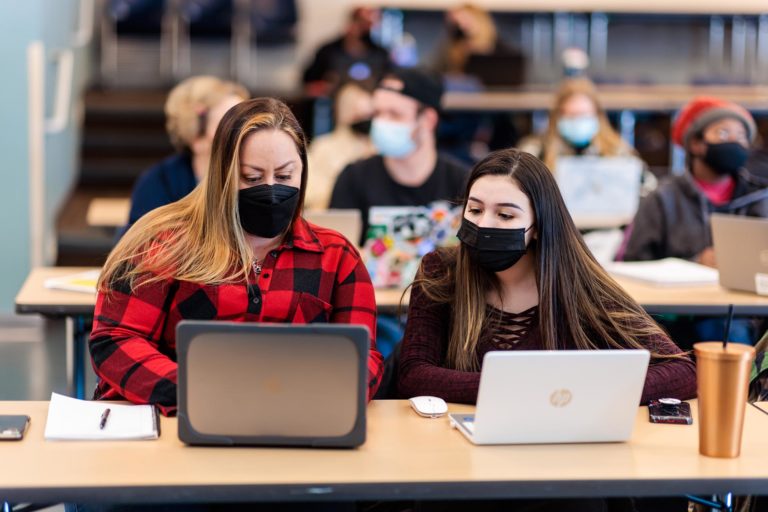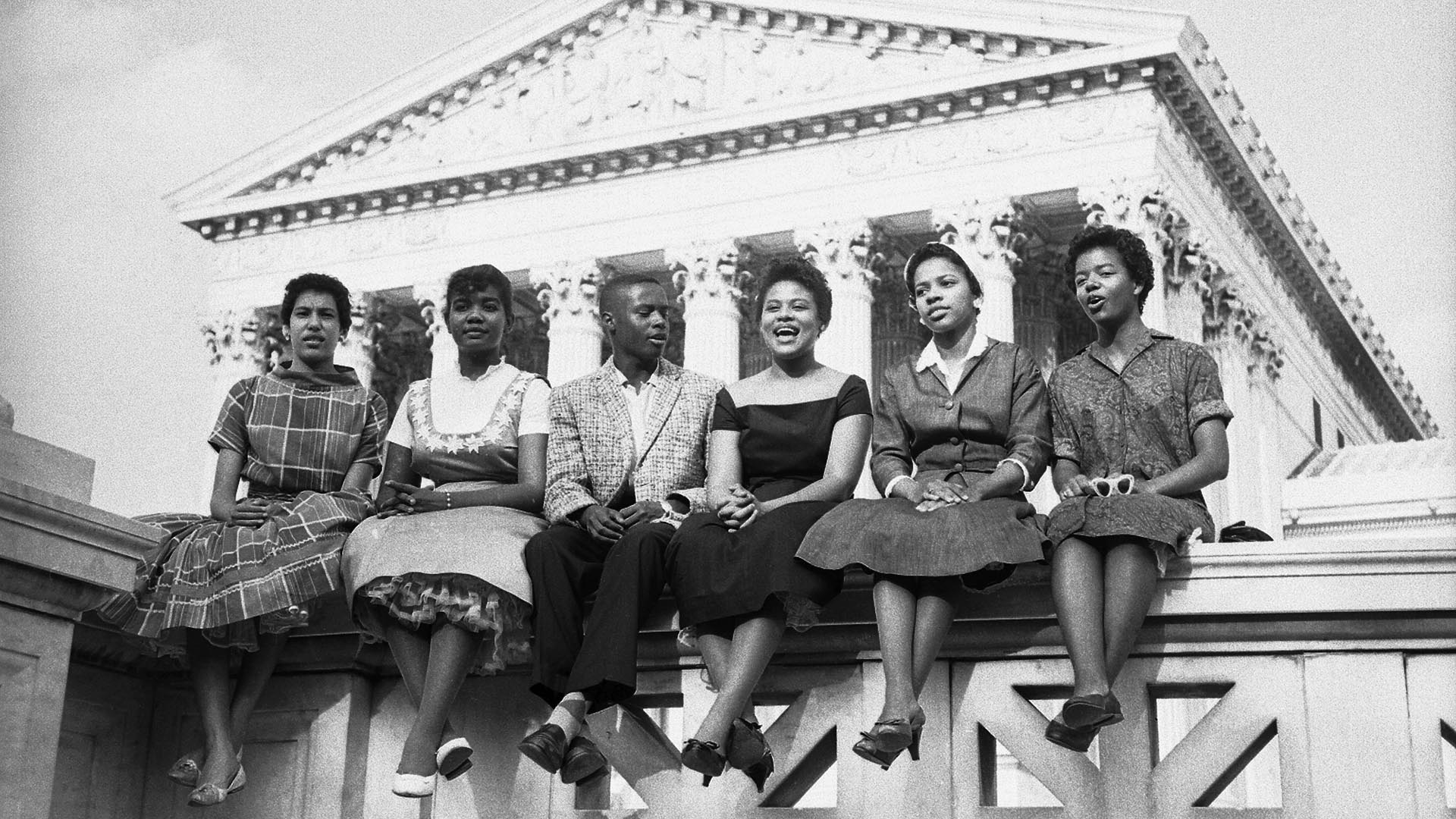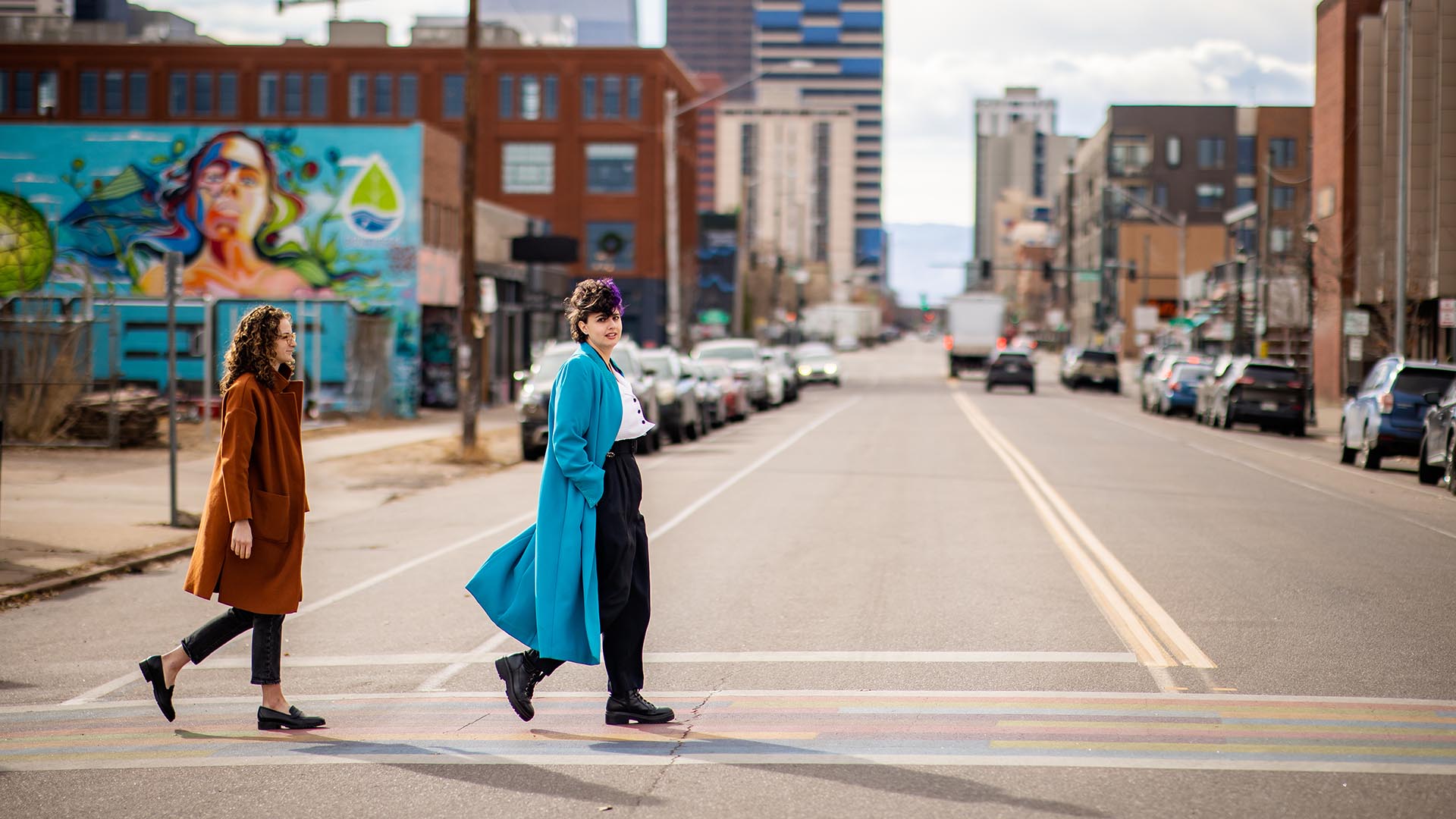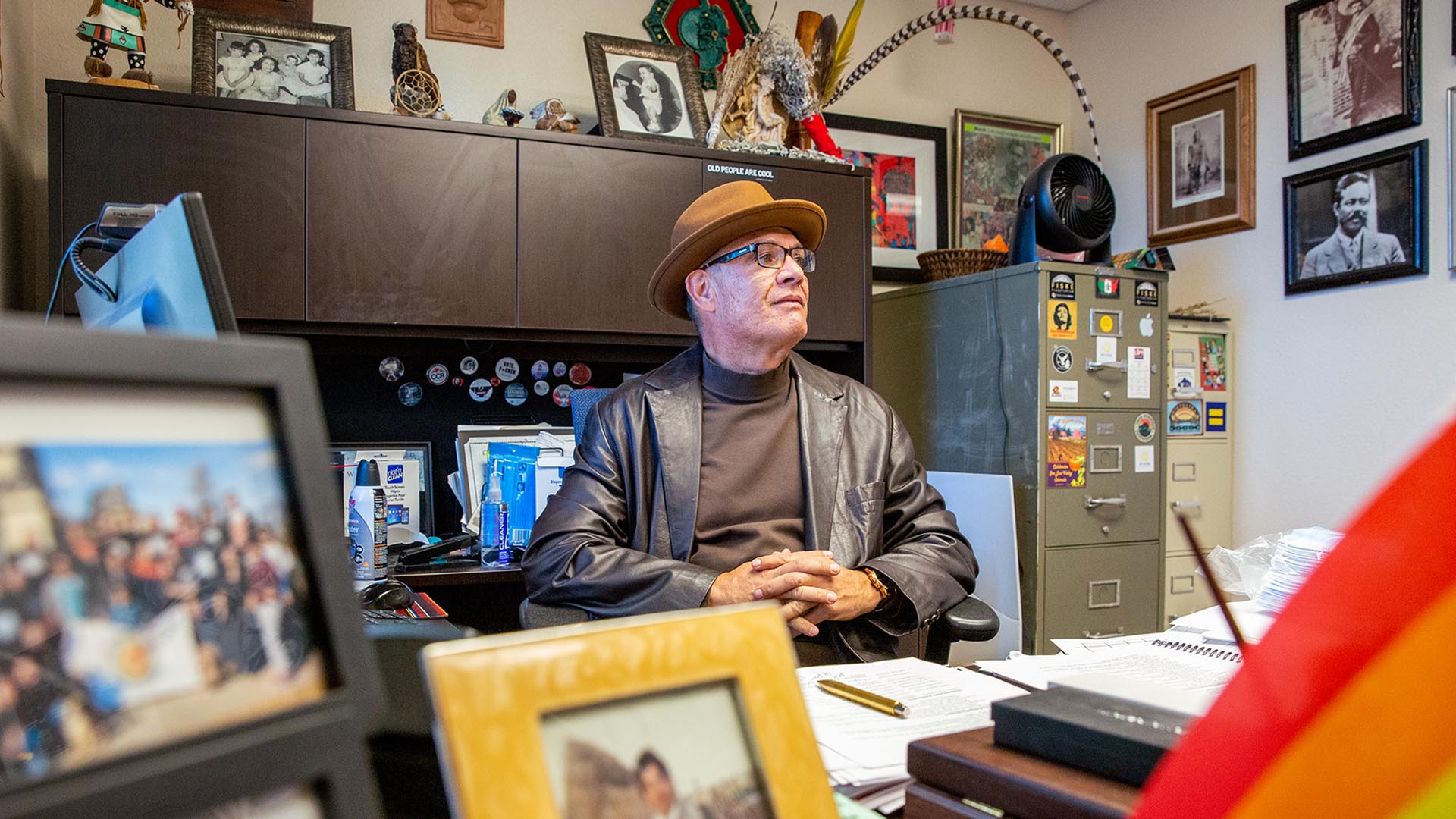On the front lines of exploitation
How the next generation of hospitality professionals is leading the fight against human trafficking.

A Broomfield man was sentenced this month to 20 years in prison for sex-trafficking homeless minors. Steve Allen Contee used his construction business as a front for exploitation of youth, using drugs and violence to control his underage victims, according to the FBI’s Denver office.
“I saw how he targeted us. He would use drugs to manipulate. … He would force us into things that were awful,” one of the victims said in a statement read by a court-appointed advocate. “I remember one time when he couldn’t control me, he dragged me to a field and held a gun to my head, so it became easier to just do what he said.”
The specter of such evil hiding in plain sight hits close to home for Sheena Ortiz, a mother and Event and Meeting Management junior at Metropolitan State University of Denver who is preparing for a career in an industry utilized by human traffickers.
“What if it was your family member being trafficked?” Ortiz asked. “Being in the hospitality industry, we’re on the front lines to catch people doing this.”
RELATED: Under lock and key
The need for hospitality professionals to recognize and intercept exploitation prompted MSU Denver’s School of Hospitality to build a human-trafficking certification into its curriculum.
Each student who completes an intro-level Hospitality course learns how to identify potential trafficking scenarios and contact state and national hotlines.
The program is the brainchild of Christian Hardigree, J.D., founding dean of the School of Hospitality, and A.J. Alejano-Steele, Ph.D., co-founder and current research director of the Denver-based Laboratory to Combat Human Trafficking.
“It’s tough — from a business perspective, businesses don’t want to have a negative association with their organizations related to trafficking because it can hurt their bottom lines,” said Alejano-Steele, who also serves as MSU Denver’s interim associate vice president of Graduate Studies. “But that doesn’t mean it doesn’t happen. Which is why it’s even more incumbent upon us to help thread that needle.”
Because of her training in the Hospitality class, “I look at things differently now,” Ortiz said. “It was eye-opening — a real gut-punch to realize how prevalent it is, everywhere.”

Rising cases
Given the covert nature of trafficking and the reluctance of victims to self-report, exact numbers are hard to come by. Still, the National Human Trafficking Hotline reported 51,667 contacts in 2020 — an increase of more than 25% from 2018. Some 625 of those in 2020 were from Colorado. And as in the Broomfield case, a confluence of multiple identities — race, gender, socioeconomic status — creates intersecting windows of vulnerability for traffickers to exploit.
The pandemic has made tracking the cases even harder. Traffickers have shifted from physical locations to online locations, Alejano-Steele said.
To stay in front of this fight, Colorado, along with Washington, has created a Human Trafficking Council. The Laboratory to Combat Human Trafficking’s Action Plan and 24/7 Human Trafficking Hotline — which saw a 30% increase in calls and texts last year — provide additional resources, Alejano-Steele noted.
RELATED: New identity
Hospitality-industry leaders are taking notice too. Gary Schirmacher, CEO of Total Hospitality Industry Solutions (THIS), highlighted resources such as TraffickCam, an app that cross-references crowdsourced images from hotel rooms with those on known trafficking sites, often on the shadowy dark web.
For example, Schirmacher recalled, a former co-worker in the events industry noticed that one picture on a trafficking site showed St. Louis’ instantly recognizable Gateway Arch.
“At that point, it really sunk in that this was happening, and we had to do something about it,” Schirmacher said.
Many businesses in the hospitality industry have adopted training indicators developed by ECPAT-USA, an anti-child-trafficking organization that provides resources to hotels, restaurants, security staff and other hospitality personnel. Schirmacher, who lives in Colorado and has collaborated with Alejano-Steele on anti-trafficking work, noted other industry adaptations, such as ride-sharing companies Uber and Lyft training drivers to identify potential exploitative situations.
Many people would be shocked to learn that labor trafficking – a form of modern-day slavery in which people are forced to work through force, fraud or coercion – is actually more prevalent than sex trafficking, said Samantha DeFilippo, an Event and Meeting Management senior at MSU Denver.
“Large-scale events are unfortunately a hotbed,” she said. “It’s easy for a person in a position of power to say, ‘I can get you someone’ and others to look the other way.”
The numbers bear that out: Labor trafficking represented 156 of cases reported in 2020 by the Colorado Department of Justice’s Office for Victims of Crime, compared with 59 sex-trafficking cases. (Another 26 trafficking reports were in both categories, and 24 were unknown.)
“It creates a petri dish for exploitation,” DeFilippo said.

Train the trainers
As part of a student competition, DeFilippo and Ortiz presented a model to help address all forms of trafficking at the recent Professional Convention Management Association. Working under the tutelage of Inna Soifer, Ph.D., a School of Hospitality faculty member and advisor, they developed a 95-page prospectus targeted to the state’s industry leaders, such as the Colorado Hotel and Lodging Association.
The “train-the-trainer” format provides three levels of intensive anti-trafficking awareness and self-defense training. The group envisioned actor Ashton Kutcher as a keynote speaker — his nonprofit Thorn is dedicated to eliminating child exploitation.
The Roadrunner team was one of five finalists in the student competition at the convention, along with teams from Georgetown, Purdue, the University of Nebraska-Lincoln and Canada’s Durham College.
“It all kind of clicked — the competition theme, our anti-human-trafficking certification and the (Laboratory to Combat Human Trafficking) connection in place,” Soifer said. “Our students did great work and exhibited exemplary leadership on such a critical matter.”
The team hopes to secure funding for its project, titled “Ignite Resilience: Combatting Human Trafficking,” and raise $35,000 for the LCHT, DeFilippo said.

For Ortiz, working on the project and her studies on the subject at MSU Denver have been invaluable experiences.
“The comprehensive background of this degree and opportunity (such as the conference presentation) can carry you so far,” she said.
“I don’t know where I will end up yet,” she added, “but I’m committed to making sure the fight against human trafficking is part of it — I’m not going to miss something on my watch.”
If you or someone you know thinks you might be the victim of trafficking, the Colorado Human Trafficking Hotline is available 24/7 via phone (866-455-8075) or text (720-999-9724).
Additional resources of food, shelter and medical services can be found on the LCHT’s Resource Directory.
Other anti-trafficking resources include Exodus Road, the International Justice Mission, the Polaris Project, Traffick Jam Live and Unitas.






